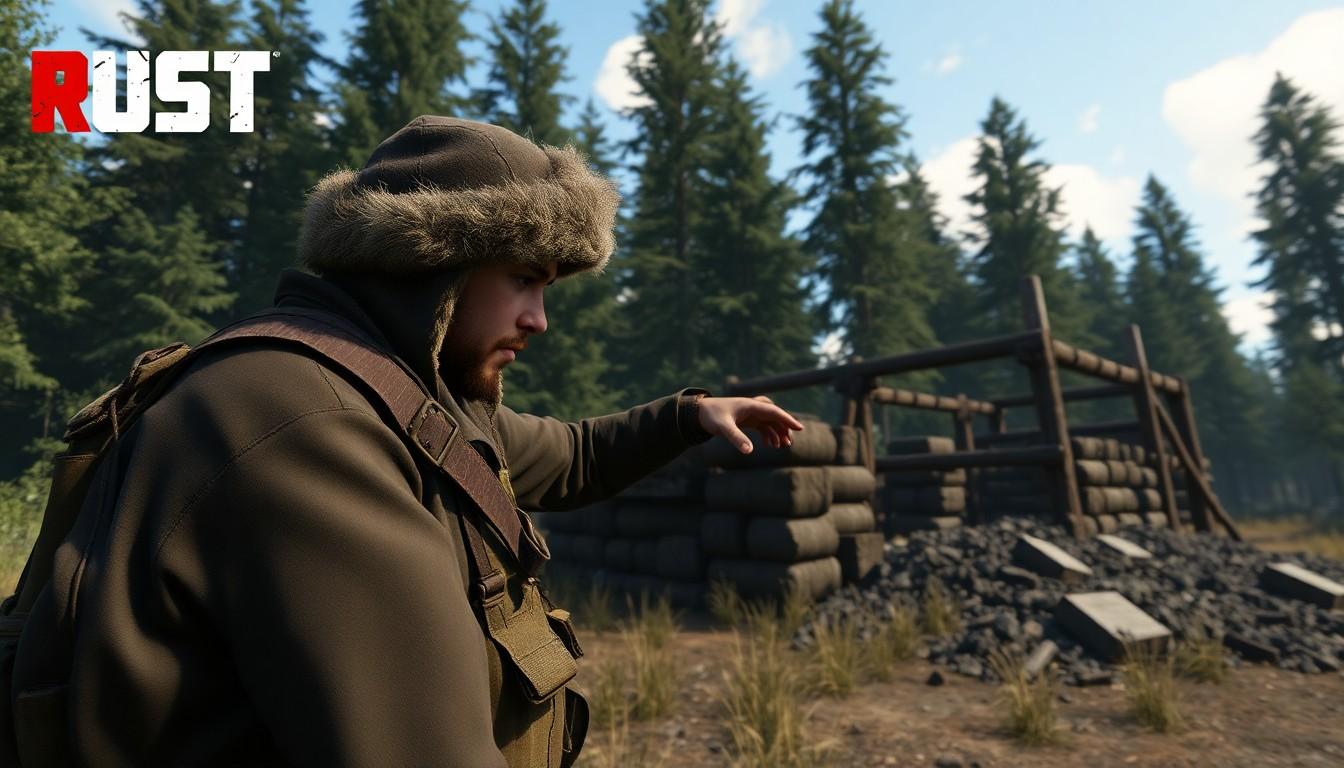Table of Contents
ToggleGetting banned in Rust can feel like being kicked out of an exclusive club for wearing the wrong shoes. One moment you’re crafting your ultimate base and the next, you’re staring at a screen that says “You’ve been banned.” But fear not, fellow survivor! The world of ban appeals is like a second chance at life—if you know how to navigate it.
Overview of Rust Game Ban Appeal
Facing a ban can feel overwhelming for players devoted to Rust. Players often feel as if they’re cut off from their gaming community. The appeal process offers a way to challenge that decision. Understanding this process empowers players to take action.
First, players must locate the ban appeal section on the Rust website. Completing the appeal form requires precise information about the ban. Players should provide their Steam ID and a detailed explanation of the situation. Clarity is crucial in articulating why they believe the ban was unjust.
After submission, patience is vital. Players may wait several days for a response due to the volume of appeals. Support staff reviews each case carefully, evaluating the evidence provided. If an appeal is successful, players often regain access to their accounts promptly.
Not every appeal results in a reversal. Players should maintain a respectful tone throughout their communication with support staff. Adhering to guidelines improves the chances for a favorable outcome. Gathering supporting evidence strengthens the case significantly.
In some cases, players may find the original ban justified. Accepting the consequences might encourage reflection and better gaming behavior in the future. Every player should learn from the experience to avoid future disputes. Embracing a positive mindset can ultimately lead to growth within the gaming community.
Understanding the appealing process transforms a daunting experience into a chance for redemption. With the right approach, players can work towards regaining their place in the Rust world.
Reasons for Rust Game Bans

Understanding the reasons behind Rust game bans helps players navigate their gaming experience. Various factors contribute to bans, significantly affecting player access.
Cheating and Exploits
Cheating remains one of the primary reasons for bans in Rust. Players who use cheats gain unfair advantages, disrupting the game for others. Exploits also lead to bans; these are unintended game mechanics that provide a competitive edge. Developers actively monitor for cheating to maintain fair play across the community. Detection systems flag suspicious behavior, prompting swift enforcement actions. Players caught using cheats or exploits face immediate account penalties, often resulting in permanent bans. Reporting procedures in the game allow other players to document such activities, increasing the likelihood of enforcement.
Toxic Behavior
Toxic behavior influences player bans significantly within the Rust community. Offensive language, harassment, or discriminatory remarks often lead to penalties. Developers prioritize creating a safe gaming environment, resulting in strict guidelines against such conduct. Players may report toxic behavior, which contributes to investigations. Repeated offenses culminate in bans to preserve community integrity. Positive communication fosters a better gaming experience, while negative remarks provoke swift action from moderators. Engaging in respectful behavior enhances one’s chances of remaining within the game community.
Understanding the Ban Appeal Process
The ban appeal process offers players a chance to address their bans effectively. Understanding the steps involved can significantly enhance the possibility of a successful appeal.
Submitting a Ban Appeal
To start the ban appeal process, players must visit the official Rust website. The appeal section is usually found under the support or contact tab. Filling out the form requires detailed information about the account and the circumstances surrounding the ban. Players should remain honest about their situation and avoid exaggerating facts. Providing clear identification of the ban type is essential for faster processing.
What to Include in Your Appeal
Including specific details strengthens an appeal. Players should mention their account name and any related game IDs. Evidence supporting their case should accompany the submission. Rational explanations for the actions leading to the ban can also be beneficial. Showing understanding of the rules and expressing a commitment to fair play often positively influences the appeal outcome. Respectful communication remains critical throughout the appeal process.
Strategies for a Successful Ban Appeal
Players can enhance their chances of a successful ban appeal through well-planned strategies. Knowing how to gather evidence and write an effective appeal makes a difference in the outcome.
Gathering Evidence
Collecting relevant evidence serves as a foundation for a strong appeal. Screenshots of interactions or game sessions can provide concrete examples. Players might also gather server logs or records from monitoring software if applicable. Documenting incidents chronologically helps present a clear narrative. Any communication logs with other players or moderators may offer insight into the situation. Remaining organized boosts clarity and shows a sincere effort.
Writing an Effective Appeal
Clarity and structure matter when writing an appeal. Begin with a concise introduction outlining the purpose. Then, explain the situation with specific details, such as account name and circumstances surrounding the ban. Providing rational explanations encourages understanding from the reviewers. It’s crucial to express a commitment to following community guidelines in the future. Each statement should reflect a respectful tone, even in challenging situations. Closing with a thank you for their consideration sets a positive tone for the reviewer.
Common Challenges in Ban Appeals
Players encounter several challenges when navigating the ban appeal process. Providing sufficient evidence stands out as a common obstacle. Gathering relevant screenshots and communication logs requires time and attention but is crucial for a strong case. Many players struggle with clarity in their appeals, leading to vague explanations that don’t address the specific reasons for the ban.
Maintaining a respectful tone in written communication presents another hurdle. While frustration is understandable, aggressive language can hinder the chances of a favorable review. Demonstrating sincerity and a willingness to adhere to community guidelines can profoundly influence the outcome.
Time sensitivity also poses a challenge. Players often wait anxiously for responses, creating additional stress. Developers may take varying amounts of time to review appeals, and patience becomes essential.
Confusion regarding the appeal process remains prevalent among the gaming community. Some players may overlook the specific requirements, such as unique information like account names or reasons for the ban. Failing to follow the proper guidelines can lead to immediate dismissal of the appeal.
Another significant challenge arises from the complexity of the ban itself. In some cases, suspensions stem from misconceptions about player behavior or automatic detection systems. Understanding the context of the ban can provide valuable insights for crafting a more effective appeal.
Ultimately, players who approach the process with thoroughness, clarity, and respect can navigate these challenges more successfully.
Conclusion
Navigating a ban in Rust can feel daunting but understanding the appeal process offers players a pathway back into the community. By approaching the situation with patience and respect players can significantly improve their chances of a successful appeal. Gathering evidence and articulating a clear and honest narrative is essential in presenting a compelling case.
While not every appeal will result in a reversal players can learn from the experience and enhance their gaming behavior moving forward. Embracing this opportunity for growth can not only aid in regaining access to the game but also foster a more positive gaming environment for everyone involved.

